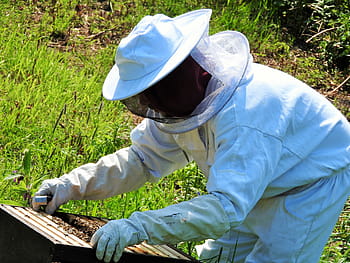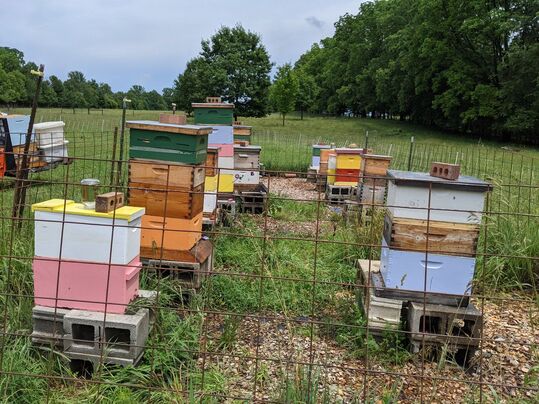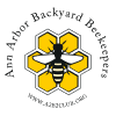 Assessment A hive inspection is a thorough examination and recording of the status of a hive including the contents of every frame. This is usually only done once a year. Most of the time beekeepers will be performing a hive check. For a typical hive check, the beekeeper is looking for 4 things: 1) Is the hive queenright?, 2) Does the hive have enough of the right kind food for the time of year?, 3) Does the hive have the proper amount of space for the time of year? 4) Are there any signs of disease or pest issues (i.e. doing a mite test)? Other more specific checks might be looking for things like queen cells or a virgin queen or if an introduced queen has been accepted, checking to see if a mite treatment was successful (i.e. retesting a hive for Varroa mites), finding and marking a new queen, or checking to see if two hives combined successfully. Before Before a beekeeper enters their apiary, they should have a plan for what they are going to do with each hive and the proper equipment to perform the checks, including some form of record keeping to keep track of what they intended to do and what they actually did. The beekeeper’s plan should include contingencies, for example, what to do if one of the hives is queenless or if one of the hives needs more space or if a Varroa mite test reveals the need to treat the whole apiary. This may also entail bringing extra equipment or mite treatments to the bee yard. C-shaped Checking if a hive is queenright doesn’t necessarily mean finding the queen. Often it is difficult for new beeks (beekeepers) to find an unmarked queen, but fortunately the presence of single eggs in the middle of the floor of a cell is a sign that a queen was present in the hive at least 3 days ago. Likewise, the presence of small, C-shaped larvae indicates a queen’s presence in the hive at least 6 days ago. Hives should have abundant pollen stores in the spring and summer for brood rearing and abundant honey stores in the fall for the winter. Bees generally require more space in the spring and summer less in the fall and winter. A careful inspection of the brood chamber and a Varroa mite check will often warn you of the presence of pests or pathogens. More Information: https://www.youtube.com/watch?v=CohtHUThEVc
0 Comments
Leave a Reply. |
AuthorJen Haeger is a new master beekeeper and board member of A2B2. Archives
August 2022
Categories
All
|


 RSS Feed
RSS Feed
